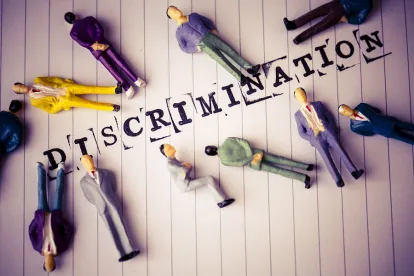Now that I have your attention, let’s discuss a recent First Circuit decision interpreting when there’s a hostile work environment and who’s liable for it under the Maine Human Rights Act. Roy v. Correct Care Solutions, No. 18-1313 (1st Cir. 2019). Judge Lynch, writing for co-panelists Judges Stahl and Barron, issued a thorough decision vacating summary judgment in favor of the employer issued by District Court Judge Levy.
The facts are set out in detail describing the claims of the plaintiff, a nurse, employed by a company at the Maine Department of Corrections prison, alleging discrimination, sexual harassment and retaliation. Title VII claims accompanied her suit under sections 4633 and 4572 of the MHRA. The Court of Appeals affirmed dismissal of civil rights claims against the warden and deputy warden but vacated judgment in favor of the other defendants.
Some salient legal takeaways include:
- The holding that section 4633 of the MHRA applies to individual persons (and non-employers). This construction isn’t overly surprising, because this section of the statute expressly refers to persons rather than employers, and the MHRC has long taken the position that it isn’t limited to employers. But this is the first case to so hold. Interestingly, in determining section 4633 did not apply to non-employers, Judge Levy relied on Fuhrmann v. Staples Office Superstore East, Inc., 2012 ME 135, 58 A.3d 1093 (2012), a Law Court decision in which he participated, which held that the definition of “employer” (which includes “any person acting in the interest of any employer”) wasn’t intended to cover agents, only to ensure employers could be held liable for the acts of agents.
- The holding that, for a report to be protected, the employer must have an “indirect” ability to influence the condition or practice being reported as unlawful or unsafe. The Law Court has said that, to be protected, it is “require[d] that the report must address violations, conditions or practices that the employer has the ability and authority to correct, and those violations, conditions or practices complained of must bear a direct relationship to the employee’s current employer.” Hickson v. Vescom Corp., 2014 ME 27, ¶ 20, 87 A.3d 704, 711 (2014). Apparently, the plaintiff admitted that her employer had no authority to correct the conduct of the MDOC employees; yet the First Circuit found the report to be protected because there were things the employer could have done to try to correct the situation. How or whether this view will alter or expand the Law Court’s ruling in Hickson remains to be seen. At least in theory, there’s always something the employer can do, even if it lacks control: it can complain, request, etc.
While not of particular legal resonance, interesting from my perspective as someone not usually practicing in this area is Judge Lynch’s discussion of what constitutes a hostile work environment. The hostility must be at least in part because of sex. Judge Lynch listed a host of facts to support this conclusion (including spanking). The actions and statements I find of interest are those sexualizing aspects of the plaintiff’s appearance, which show context is everything. When you’ve got evidence like spanking, calling a woman a dumb blonde can add to the hostile environment, even if in another context, you could theoretically say it to a man or your cocker spaniel. Judge Lynch, after identifying a defendant’s use of the term “bitch” as one basis for creating a fact dispute wrote:
Second, a reasonable jury could infer that the comment about Roy’s “ass” was made in part because of her sex, given the context. See, e.g., Tang v. Citizens Bank, N.A., 821 F.3d 206, 216 (1st Cir. 2016) (considering context, use of word “ass” was based on sex); McGullam v. Cedar Graphics, Inc., 609 F.3d 70, 85 (2d Cir. 2010) (Calabresi, J., concurring) (viewing comment by male co-worker about plaintiff’s “big fat ass” to be based on sex). That context includes Turner, Parrow, and Dever sexualizing Roy and officers like Snow emphasizing aspects of her appearance, such as her blonde hair.
In this instance, as described by Judge Lynch, there were many other factual allegations of degrading treatment and overtly sexual harassment, putting such reference into context. I don’t think the opinion should be viewed as an invitation to sue your boss if he tells you in isolation to get off your butt and get to work.
One final point: both the EEOC and MHRC filed amici briefs. I assume they supported the plaintiff’s interpretations of the statutes. Yet the court said nothing about any deference to the agencies in reaching its conclusions. I suppose if a court doesn’t need to defer, it doesn’t matter, and the type of deference to an amici brief isn’t very heavy-duty under the Chevron hierarchy. That said, I wonder why the opinion made no mention at all of the agencies’ positions.


 />i
/>i

